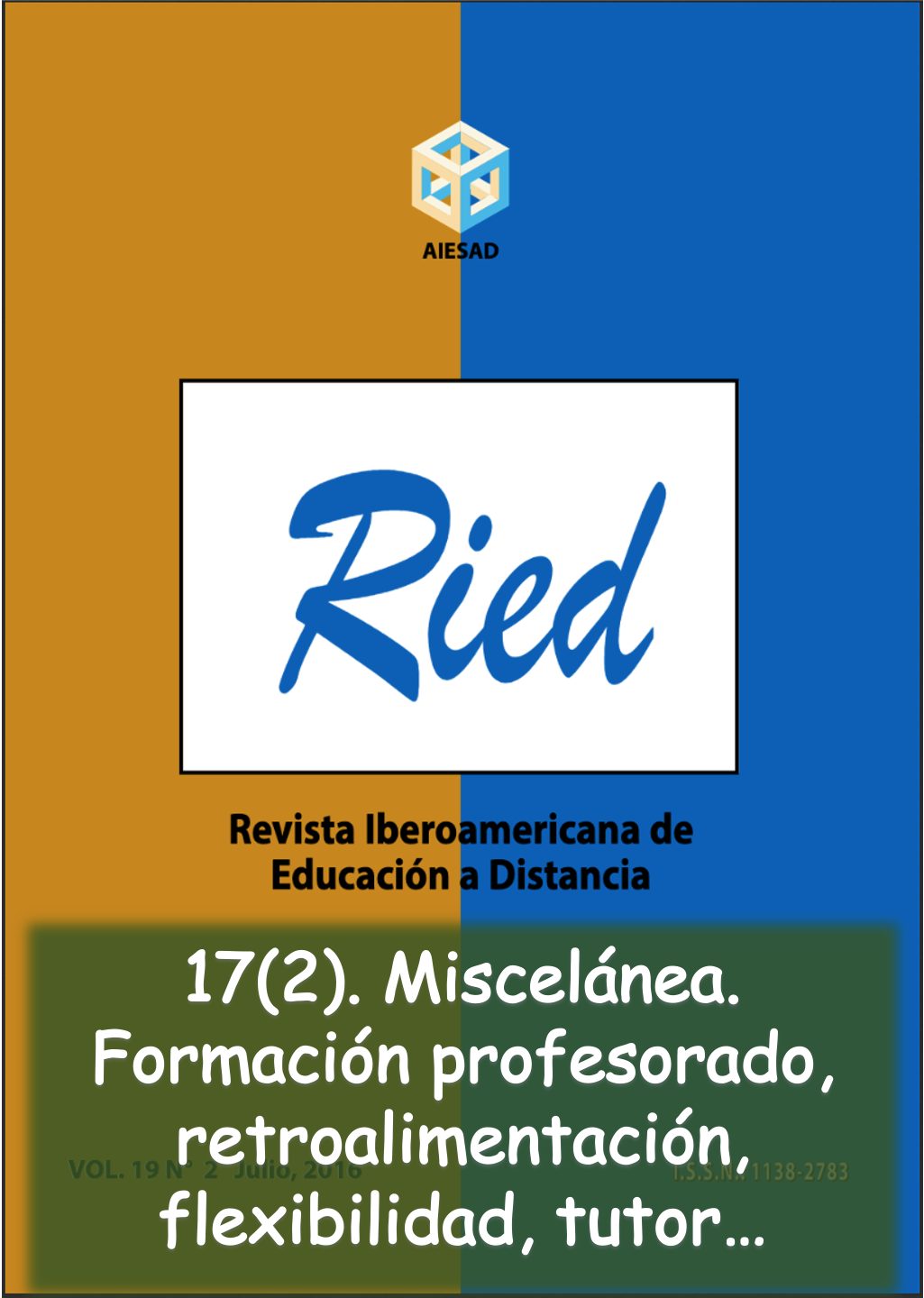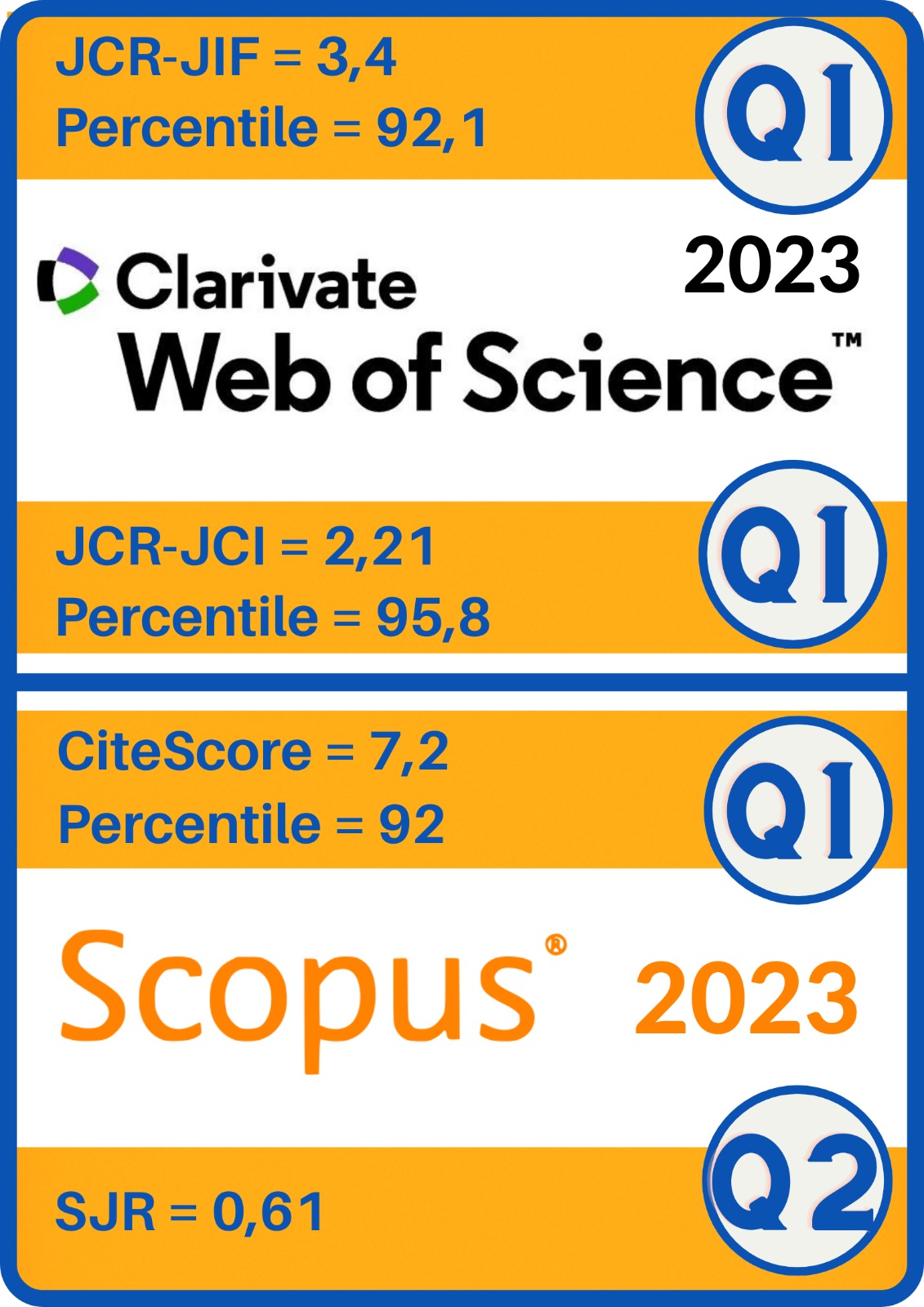Teacher or tutor: a tenuous line in distance learning teaching
DOI:
https://doi.org/10.5944/ried.17.2.12685Keywords:
Distance learning, Tutorials, TeachingAbstract
This research paper analyzes the nature of tutorial work in Distance Learning (DL). It uses as a key reference official documents from the Brazilian Ministry of Education and Culture (MEC) (BRAZIL, 2007), i.e. to describe both the functions of tutors and the evaluations that tutors from the Center for Distance Higher Education, State of Rio de Janeiro (CEDERJ), implement within their own teaching and evaluation practices. This study contextualizes the research by addressing theoretical issues related to teaching in distance education, which involves several professionals, including the tutor. The article shows that there is a lack of terminology to define the role of the tutor within distance education, a field which is becoming increasingly complex and more difficult to define. It explains that, although the tutor is recognized as having a significant and specific role in distance learning courses, s/he is still a professional without a professional profile, the latter of which is evidence of a proven educational background and having a certain role within distance learning. This article also reveals the growing need to carry out further studies that highlight the teachers’ roles, their professional portfolio, and more importantly, their teaching performance and teaching style in DL. The article analyzes the answers to the questionnaire that were given to 38 tutors from CEDERJ/UERJ on the undergraduate course in Pedagogy. Finally, it concludes that all participating tutors considered themselves to be teachers, even though they were not recognized as such by the institution they worked for.
Downloads
References
Alonso, K. M. (2010). A expansão do ensino superior no Brasil e a EAD: dinâmicas e lugares. Educ. Soc., 31 (113), Campinas, (1319-1335), out.-dez. 1335. [em línea] Disponível em: http://www.cedes. unicamp.br (consulta 2013, 10 de junio).
Alves-Mazzotti, A. J.; Gewandsznajder, F. (2001). O método nas ciências naturais e sociais: pesquisa quantitativa e qualitativa. São Paulo: Pioneira.
Belloni, M. L. (2006). Educação a distância. 4 ed. Campinas: Autores Associados. Brasil. (2007). Ministério da Educação. Secretaria de Educação a Distância. Referenciais de qualidade para educação superior a distância. Brasília.
Bruno, A. R.; Lengruber, M. S. (2009). Dialética professor-tutor na educação online: o curso de Pedagogia-UAB-UFJF em perspectiva. In: III Encontro Nacional sobre Hipertexto, Belo Horizonte, 29- 31 out. [em línea] Disponível em; www. ufpe.br/nehte/hipertexto2009/anais/a/ a-dialetica-professor-tutor.pdf (consulta 2013, 6 de julio).
Flemming, D. M.; Luz, E. F.; Luz, R. A. (2001). Monitorias e tutorias: um trabalho cooperativo na educação a distância. (10) [em línea] Disponível em: www. abed.org.br/publique/cgi/cgilua.exe/ sys/start.htm?UserActiveTemplate=4 abed&ind=142&sid=114%20 (consulta 2013, 30 de mayo).
Litwin, E. (2001). Educação a distância: temas para debate de uma nova agenda educativa. Porto Alegre: Artmed. Machado, L. D; Machado, E. C. (2004.) O papel da tutoria em ambientes de EAD. In: Anais do XI Congresso Internacional de Educação a Distância, Salvador, BA.
Maggio, M. (2001). O tutor na educação a distância. Em: Litwin, E. (Org.) Educação a distância: temas para debate de uma nova agenda educativa. Porto Alegre: Artmed, (93-110).
Mill, D. (2012). Docência virtual: uma visão crítica. Campinas: Papirus.
Mill, D. (2008). Educação a distância: desafios contemporâneos. São Carlos: EdUFSCar.
Rêgo, M. C. L. C. (2010). Tutoria e formação humana no ensino superior a distância. 157 f. Tese (Doutorado em Educação), UERJ, Rio de Janeiro.
Rizzini, I. (1999). Pesquisando: guia de metodologias de pesquisa para programas sociais. Rio de Janeiro: USU.
Scheibe, L. (2006). Formação de professores: dilemas da formação inicial a distância. Educere et Educare, l (2), Cascavel, (199- 212).
Tractemberg, L.; Tractemberg, R. (2007). Seis competências essenciais da docência on-line independente. In: Congresso Internacional da ABED, 13, Curitiba. [em línea] Disponível em: http:// www.abed.org.br/congresso2007/ tc/552007113218PM.pdf (consulta 2013, 7 de julio).
Downloads
Published
How to Cite
Issue
Section
License
The articles that are published in this journal are subject to the following terms:
1. The authors grant the exploitation rights of the work accepted for publication to RIED, guarantee to the journal the right to be the first publication of research understaken and permit the journal to distribute the work published under the license indicated in point 2.
2. The articles are published in the electronic edition of the journal under a Creative Commons Attribution 4.0 International (CC BY 4.0) license. You can copy and redistribute the material in any medium or format, adapt, remix, transform, and build upon the material for any purpose, even commercially. You must give appropriate credit, provide a link to the license, and indicate if changes were made. You may do so in any reasonable manner, but not in any way that suggests the licensor endorses you or your use.
3. Conditions for self-archiving. Authors are encouraged to disseminate electronically the OnlineFirst version (assessed version and accepted for publication) of its articles before publication, always with reference to its publication by RIED, favoring its circulation and dissemination earlier and with this a possible increase in its citation and reach among the academic community.








